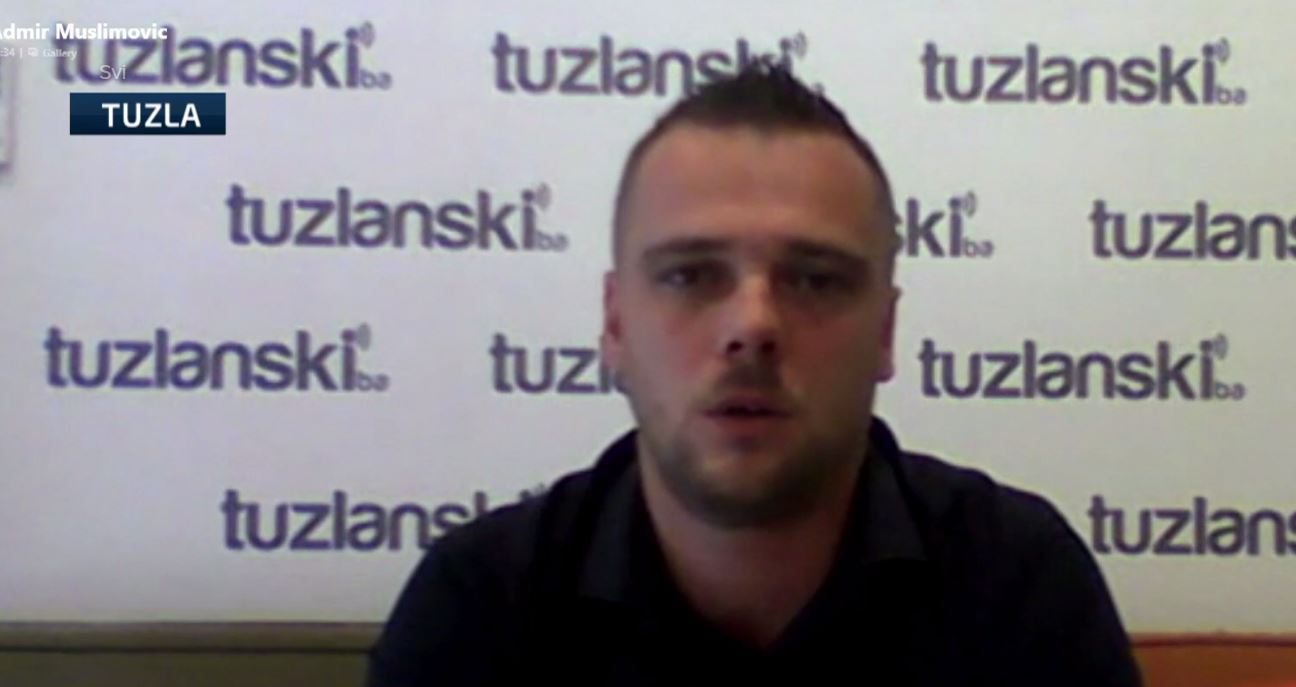Journalist: Prosecutors knew allegations against Bosnia's RS region PM for years

BIRN journalist Admir Muslimovic told N1 on Tuesday that allegations that the current Prime Minister of Bosnia’s Serb-majority region could have participated in an operation to relocate mass graves in order to cover up the Srebrenica Genocide were already mentioned in court in 2017 but that the Prosecutor’s Office never replied to any requests for information regarding the allegations when he tried investigating them.
Bosnia's Prosecutor's Office told N1 on Monday that its War Crimes Chamber formed a case against the Prime Minister of the Bosnia’s Republika Srpska (RS) entity, Radovan Viskovic.
On Thursday, the investigative web portal Istraga.ba published an article including an audio recording from 2017 containing the testimony of protected witness M-16 in the case of 'Miodrag Josipovic et al.'.
“Radovan Viskovic offered me money to relocate mass graves,” the witness told the Court. Istraga.ba also reported that the same witness gave the exact same testimony in 2007.
Muslimovic said that he attended a hearing in the 'Josipovic et al.' case on June 17, 2017, and that the Balkan Investigative Reporting Network (BIRN) was the only media outlet to cover it.
“I remember well that a witness said that Viskovic allegedly offered him a large sum of money to participate in the excavations of mass graves, which the witness rejected,” he said, pointing out the significance of the trial because it included a former member of the RS Army who testified against his own.
“These are rare things and for that reason, I remember the trial well," Muslimovic told N1.
The identity of the protected witness was revealed by some media and Muslimovic said that this represents an attempt to discredit that person and to create grounds for speculations that he might have been paid off, for example.
"This is not the first time that the name of a protected witness is being revealed in the RS. It was also the case in the programme of RTRS (the RS public broadcaster) in 2012 when a journalist spoke with a war commander about a protected witness,” he said.
“The prosecution did not react and no one was sanctioned. The punishment for this is between three months to three years in prison but such a practice is rarely used,” he explained, expressing concern that “this is how witnesses are intimidated so that no one else starts to reveal the truth about what is happening in this region.”
Muslimovic said he asked the Prosecutor's Office twice for information to verify the allegations that Viskovic was allegedly connected to the genocide in Srebrenica.
"On May 4 this year, I sent a clear request to the Prosecution that I needed information on whether any investigation had been conducted in regard to that witness and I included a link to our article that led to this. We never received a response,” he said.
Muslimovic said he also asked the press service of the Prosecutor’s Office for information at the end of 2019.
“They never sent it,” he said, adding that the journalists also tried to get comments from Viskovic regarding the matter, but without success.
The way the information was handled by the judiciary could be subject to a disciplinary procedure, Muslimovic said but added that he does not expect that anybody will be sanctioned because of it.
The journalist also rejected the idea that the case was initiated for the purposes of an election campaign, as Bosnia is to hold local elections in November.
"I don’t think that this is the case because this can only work in favour of his party as we know what the climate is like in the RS in regard to recognising the genocide,” he said, referring to the frequent genocide denial coming from top RS officials.
“I would characterize it as a combination of circumstances. The report was published in 2017, Viskovic took office in 2019. I tried to investigate this story a year ago and it was simply a combination of circumstances that led to the Istraga.ba portal obtaining the documents and publishing them,” he said.
"This is not the first, nor is it the last such case when it comes to war crimes, and not only in Bosnia and Herzegovina. Examples from World War II show that two to three decades after the war, certain people came across new information and certain people were arrested. This is not something that can happen in relation to an election year,” he added.
There is not a shred of doubt that RS authorities knew about the role VIskovic played during the war, Muslimovic said.
Kakvo je tvoje mišljenje o ovome?
Učestvuj u diskusiji ili pročitaj komentare





 Srbija
Srbija
 Hrvatska
Hrvatska
 Slovenija
Slovenija







